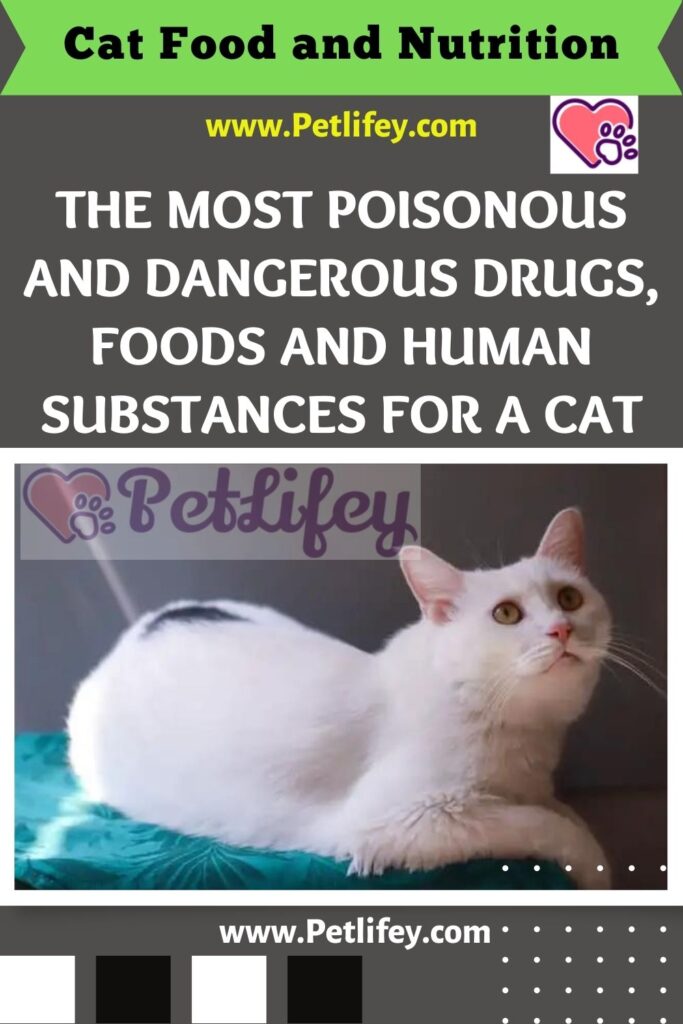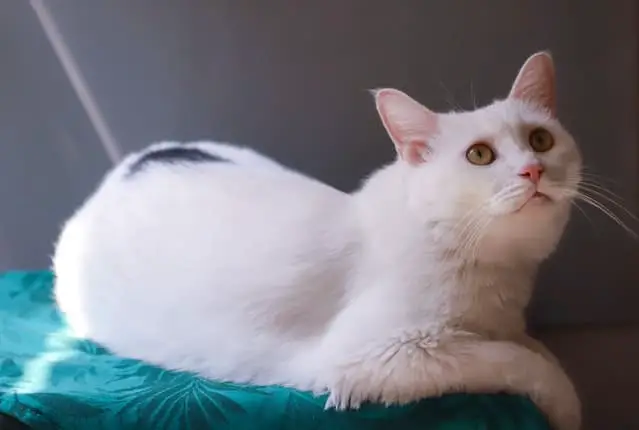
The cat is by its nature a very curious animal, and exploring the house, it may come across dangerous substances, human foods and poisonous drugs for them.
Cats are very curious animals, and during their explorations they can stick their noses a little in all the places of our home, often without even knowing it. But there are many substances in our homes that are potentially dangerous for the cat. For this reason, it is better to know them in order to keep them indoors and totally away from the reach of our furry friends, so as to avoid potential poisoning or problems with their health.
Dangerous human drugs for the cat
Some common medicines used by us humans, both over-the-counter and prescription-only, can be a great danger to our cat.
In fact, these drugs must be kept in a place that the cat cannot access, so as to avoid any problem.
The most common are:
- Medicines against colds
- Painkillers (paracetamol, aspirin, ibuprofen)
- Antidepressants
- Cancer drugs
- Vitamins and other supplements
- Diet pills
In addition, drugs for humans do not work in the same way for our cats. We must never give medicines not prescribed by a veterinarian to our furry friend.
The veterinarian can recommend the appropriate drugs for our cat, so as to avoid any problems. An incorrect or excessively large medicine can also be lethal.
Human food and drink harmful to the cat
Our cats may beg us to get some food while we eat, or try to steal a piece of our lunch when we’re distracted.
But we must not be so superficial, because some foods and drinks that are commonly on our tables, are potentially poisonous to a cat.
Among them, the most dangerous are:
- Onions;
- Garlic;
- Chives;
- Grapes;
- Raisins;
- Chocolate;
- Leavened dough (for bread, pizza, etc.);
- Xylitol (usually found in sugar-free candies and gums, or in toothpaste);
- Alcoholic beverages;
- Caffeinated drinks (coffee, tea, many carbonated drinks such as soda).
Dangerous plants for the cat
Some houseplants, as well as some garden or that we can put on the balcony, can be wonderful for us humans, but harmful to the cat.
We must pay attention to the plants that we bring into the house if we have a cat, because they can be potentially lethal for these animals. These include:
- Tulip;
- Aloe;
- Azalea;
- Chrysanthemum;
- Lily;
- Poinsettia;
- Mistletoe;
- Hyacinths;
- Rhododendron;
- Marijuana.
Poisonous chemicals and detergents
Although for us humans they are usually uninteresting from a food point of view, some chemicals have an appetizing taste for a cat.
For this, we should pay attention to some detergents and products that are usually used in the house, because they can poison the cat.
In particular, the most dangerous products for a cat are:
- Bleach;
- Drugs for dogs, against fleas and ticks (be it shampoos, spray products, collars, pills, etc.);
- Baits for insects;
- Baits for rodents;
- Herbicides;
- Fertilizers;
- Detergents;
- Antifreeze (in every form, even what spreads on the ground. Cats could lick it or walk in it).
Other domestic risks for a cat
There are other things we should keep an eye on when we have a cat. There are so many potential dangers in the home to watch out for.
Some common household items can choke or strangle our cat, if you roll up in it, for example.
Others may be eaten by the cat, which may choke or suffer from intestinal blockages if it swallows them. The most common are:
- Toys with small parts, or easily disassembled;
- Christmas decorations (lights, hanging objects, etc.);
- Any type of thread or twine, including dental floss;
- Chicken bones (often present in waste).
What to do if the cat has been poisoned?

If our cat swallows a potentially poisonous substance, we must intervene promptly: every moment is important to save his life.
First of all we call our veterinarian or the veterinary emergency room, who will be able to advise us on what to do immediately.
We then collect samples of feces, vomit and substance eaten by the cat. They can be useful for the veterinarian, and to treat the cat.
The symptoms of a poisoned cat are varied, some of which may show up gradually. The signs that we must keep an eye on are the following:
- Cough;
- Diarrhea;
- Vomiting;
- Weakness;
- Excessive salivation;
- Seizures;
- Confusion;
- Stomach pain;
- Chills;
- Drink more than usual, and urinate more than usual;
- Dilated pupils;
- Breathing problems;
- Depression;
- Tremor;
- Skin irritation.
It will be important, once the cat has recovered, to contact the poison control center or veterinarian, to warn of what happened. This will avoid problems in the future to other cats.






